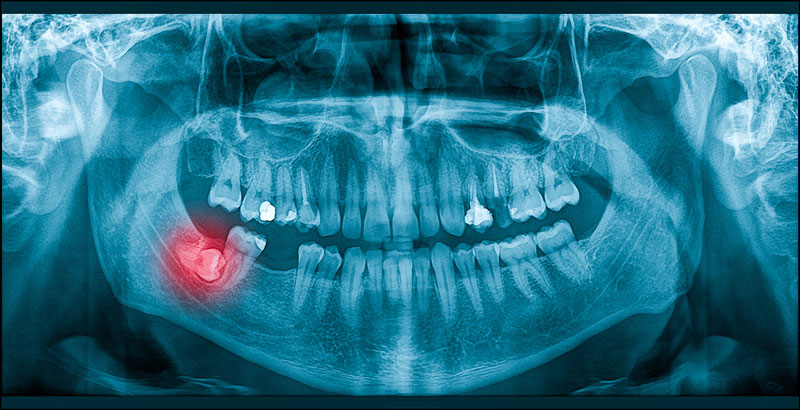
Wisdom tooth removal is a common dental procedure, but like any surgery, it can have potential complications. One of the most frequently occurring issues is dry socket, a condition where the blood clot that forms in the extraction site is dislodged or dissolves before the wound has a chance to heal. This can expose the underlying bone and nerves, leading to intense pain and delaying the healing process. Another possible complication is infection, which can occur if bacteria enter the wound. Symptoms of infection may include swelling, fever, and a bad taste or odor in the mouth. While these complications can be concerning, they are typically manageable with prompt medical attention.
Another complication to be aware of is nerve damage, particularly when the wisdom tooth is located near a major nerve. This can result in temporary or, in rare cases, permanent numbness or tingling in the lower lip, chin, or tongue. Additionally, patients may experience excessive bleeding following the surgery, which can be alarming but is usually controlled with proper care. Swelling and bruising are also common, but these symptoms generally subside within a few days. It’s important to note that while complications can occur, they are relatively rare, especially when an experienced oral surgeon performs the procedure.
How Can I Avoid Wisdom Tooth Removal Complications?
Avoiding complications after wisdom tooth removal largely depends on following your oral surgeon’s post-operative care instructions. One of the key recommendations is to avoid strenuous activities and to rest for the first 24 to 48 hours following the surgery. This helps prevent the dislodgement of the blood clot that forms in the extraction site, reducing the risk of dry socket. Additionally, maintaining good oral hygiene is crucial to prevent infection. This includes gently rinsing your mouth with a saline solution or an antiseptic mouthwash as directed by your surgeon. Avoiding smoking and spitting forcefully is also essential, as these actions can disrupt the healing process and lead to complications.
A soft diet is recommended for the first few days post-surgery to avoid putting pressure on the surgical site. Foods like yogurt, applesauce, and mashed potatoes are good options. Staying hydrated is equally important, but avoid using straws as the suction can dislodge the blood clot. Regular follow-up appointments with your oral surgeon will allow them to monitor your healing and address any issues that may arise. By closely following these guidelines and promptly addressing any unusual symptoms, you can significantly minimize the risk of complications after wisdom tooth removal.
Understanding the Role of Midwest Oral Surgery and Dental Implants in Preventing Complications
At Midwest Oral Surgery and Dental Implants, patient safety and successful outcomes are our top priorities. Dr. John Wewel and his team utilize state-of-the-art technology and advanced surgical techniques to ensure precise and effective wisdom tooth extractions. This meticulous approach significantly reduces the likelihood of complications and promotes faster recovery. For instance, our use of 3D imaging allows us to accurately assess the position of the wisdom teeth and any potential risks, such as proximity to nerves or sinuses. This detailed planning enables Dr. Wewel to execute the procedure with minimal disruption to surrounding tissues, thereby decreasing the chances of post-operative issues like dry sockets or nerve damage.
Furthermore, Dr. Wewel’s extensive experience and expertise in oral surgery mean that patients receive care tailored to their specific needs. Before the procedure, patients undergo a comprehensive evaluation where all potential risks are thoroughly discussed. This personalized approach ensures that each patient is fully informed and prepared for their surgery. Post-operative care is equally critical, and the team at Midwest Oral Surgery and Dental Implants provides clear, detailed instructions to help patients manage their recovery effectively. By choosing Midwest Oral Surgery and Dental Implants, patients can have confidence that they receive the highest standard of care, significantly reducing the risk of complications.
Exploring Midwest Oral Surgery and Dental Implants Through Photos
Visualizing the environment where your surgery will take place can greatly ease any apprehension you might have. Midwest Oral Surgery and Dental Implants is designed to provide a comfortable and professional setting for all patients. Our clinic is equipped with the latest technology, ensuring that every procedure, including wisdom tooth removal, is performed with precision and care. Photos of our clinic showcase the modern, sterile environment where our surgeries are conducted, highlighting the advanced equipment that supports our commitment to excellence. From our welcoming reception area to the state-of-the-art surgical suites, every aspect of Midwest Oral Surgery and Dental Implants is geared towards patient comfort and successful outcomes.
In addition to the environment, our dedicated team, led by Dr. John Wewel, plays a crucial role in the patient experience. Photos of our team in action demonstrate the professionalism and attention to detail that defines our practice. Dr. Wewel’s commitment to patient care is evident in every interaction, from the initial consultation to post-operative follow-ups. By exploring these photos, you can gain a better understanding of what to expect when you visit Midwest Oral Surgery and Dental Implants, helping to build trust and alleviate any concerns. We invite you to take a virtual tour of our clinic through these images and see firsthand the dedication and care that go into every procedure.
